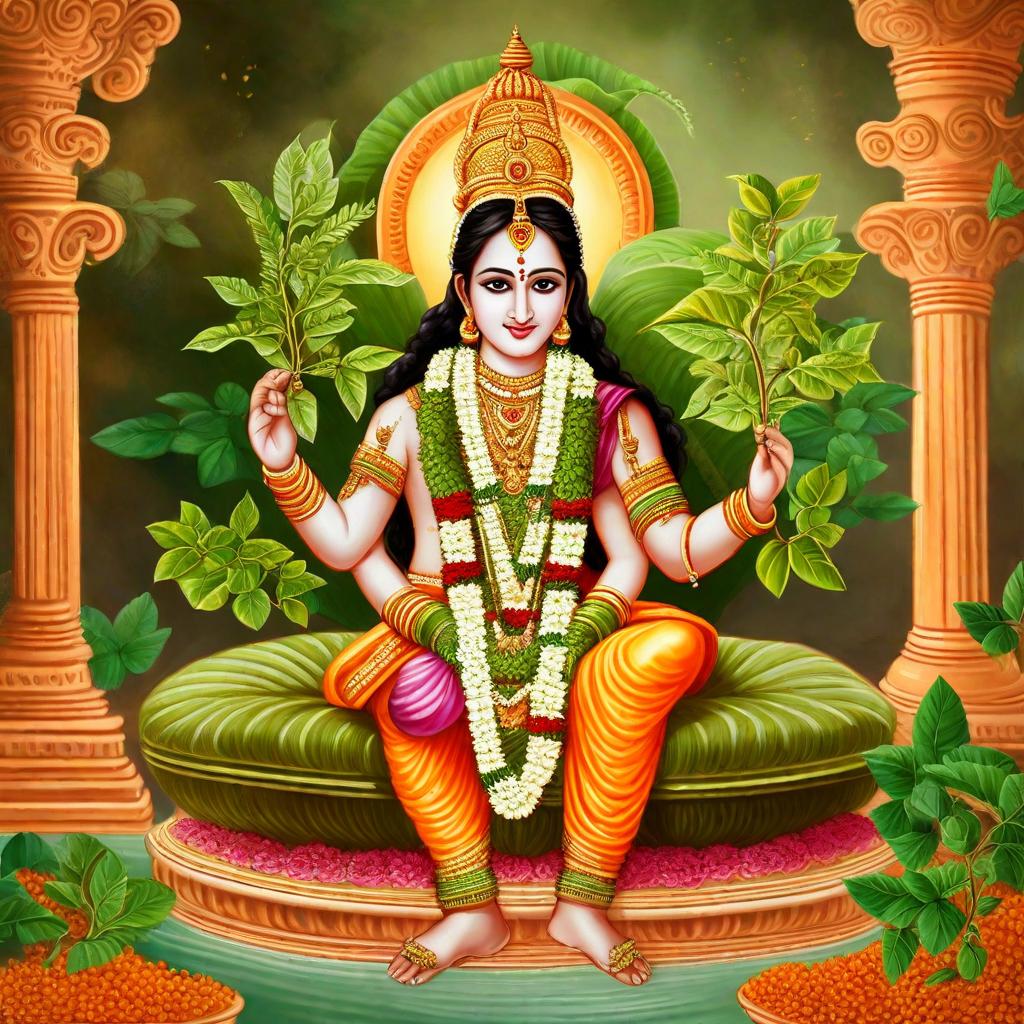Tulsi Vivah, also known as Tulsi Kalyanam, is a Hindu festival that commemorates the symbolic wedding of the holy basil plant (Tulsi) to Lord Vishnu, besides one of the principal deities in Hinduism. This unique ritual celebrated annually during the Hindu month of Kartika, likewise between the 11th and 12th lunar days of the bright fortnight. The festival holds deep spiritual significance and marks by elaborate ceremonies, vibrant decorations, and heartfelt devotion.
Significance of Tulsi Vivah
Tulsi Vivah is not merely a symbolic wedding; it carries profound spiritual and cultural implications. In other words , The Tulsi plant, revered as a goddess of purity and auspiciousness, represents the feminine divine principle nonetheless. While Lord Vishnu, often depicted as the preserver of the universe, embodies the masculine divine principle. Their union symbolizes the harmonious balance between these two fundamental forces.
Celebratory Practices
The Tulsi Vivah celebrations commence with elaborate preparations. A mandap, a temporary wedding canopy, erected around the Tulsi plant, adorned with colorful drapes, flowers, and traditional embellishments. The Tulsi plant, adorned with a sari and jewelry, placed on a decorated pedestal within the mandap, transforming into the radiant bride.Tulsi plant dressed as a bride
The groom, Lord Vishnu, represented by a shaligram stone or an amla branch, both considered sacred symbols of the deity. The wedding ceremony follows the traditional Hindu rituals, including the exchange of garlands, the Mangala Sutra (sacred thread) tying, and the Saptapadi, the seven sacred steps around the fire. It symbolizing the unbreakable bond between the divine couple.

Devotional Offerings
Devotees offer various devotional items to the divine couple, including sweets, fruits, incense, and lamps. Prayers and devotional hymns are recited, invoking blessings for harmony, prosperity, and a fulfilling life. The air filled with the fragrance of incense and the melodious sounds of mantras, creating an atmosphere of profound spirituality and reverence.
Cultural Significance
Tulsi Vivah holds immense cultural significance, marking the end of the monsoon season. The beginning of the auspicious wedding season in Hinduism. It is believed that performing the Tulsi Vivah ritual brings blessings of fertility, happiness, and conjugal harmony. The festival infact serves as a reminder of the divine nature of the Tulsi plant and its importance in Hindu culture.
Conclusion
Tulsi Vivah stands as a testament to the rich tapestry of Hindu traditions. Where the divine and the mundane intertwine to create a profound spiritual experience. It is a celebration of love, harmony, and the interconnectedness of all beings. The festival’s enduring significance lies in its ability to inspire devotion, foster cultural values, and strengthen the bond between humans and the divine.
तुलसी विवाह कहां मनाया जाता है?
tulsi vivah का शुभ मुहूर्त कितने बजे है?
check out my previous blog- https://sonulive.in/central-government-schemes-for-farmers/

